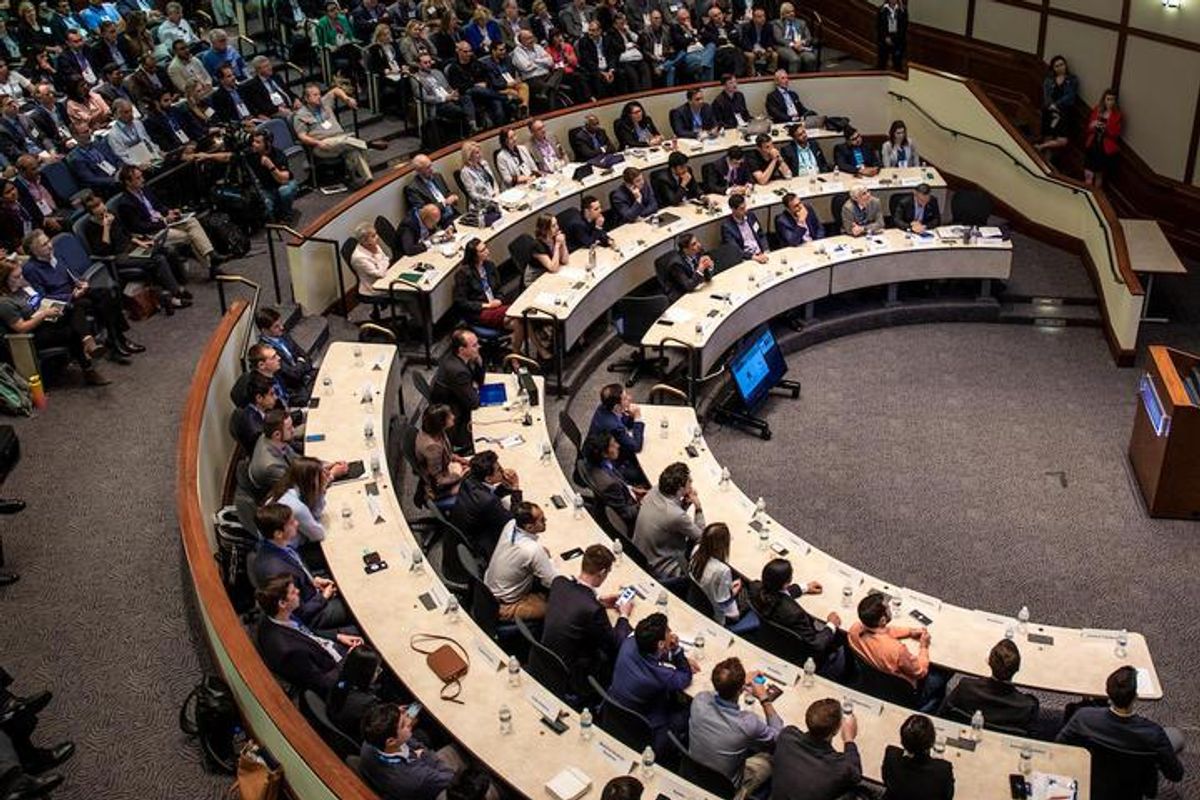Long-time innovator reflects on Houston ecosystem development, shares why he's bullish on human performance
houston innovators podcast episode 251
In his role overseeing startup accelerators for MassChallenge, Jon Nordby started noticing one industry vertical stood out in terms of success and opportunities: Human potential. Now, Nordby is a founding member of an investment firm looking for those opportunities.
Nordby, who served in various leadership roles at MassChallenge — including managing director and head of ecosystems — said he started realizing the opportunities within the organization's space and sports tech programs.
"What we realized over a couple of years running the program was that sports tech as a theme was too limiting," Nordby says on the Houston Innovators Podcast. "We were finding really great technologies, but we were limited at the market size of teams and leagues to deploy those technologies."
"Over the course of that program, we found that the things that were related more to human health and performance tended to out perform all of the other things related to sports tech — like media, entertainment, gambling," Nordby continues. "Still really great markets for those technologies, but we found a lot more traction for human performance."
Nordby joined the team at Anthropy Partners, which exists to support early stage technologies that are advancing human mental and physical performance, a little over a year ago.
Defining human performance, Nordby says he thinks about it in terms of the hardware and software of a human, or physical and cognitive abilities — and how both sides of the equation work together.
"Some of the early investments that we've made have been in three realms — sensing, data, and analytics," Nordby explains, sharing examples from the Anthropy portfolio companies.
While Nordby jokes that his interest in human performance might confuse people who know him to be not particularly athletic, his other current roles fall more in line with his career history. A three-time startup founder, Nordby worked for the Greater Houston Partnership at the time the organization launched Houston Exponential. He left GHP to lead strategy for HX before transitioning to MassChallenge. All throughout these roles, Nordby has a front row seat for witnessing what it takes to develop innovation ecosystems.
He co-founded the Anthropy's nonprofit efforts for developing innovation ecosystems, called Anthropy Constructive. This year, he founded EconWerks, a for-profit company that advises entities on creating sustainable innovation efforts.
Nordby says he's "seen where things go wrong when people with really great intentions but not a lot of exposure or pattern recognition to ecosystem development are making investments or decisions on how those ecosystems need to develop."
Usually, Nordby explains, it's an economic development or ill-informed investment decision. But wrong moves can devastate a potential startup hub.
"Typically, when an investment is made and it doesn't pan out the way they think it should, there's typically a five to eight-year cycle of no more investments being made," Nordby says on the show. "When you think about the long-term effect that has on an innovation economy — an eight-year gap where you're not investing in startups — that's a problem."
Nordby thinks back to the goal setting Houston did several years ago, and reflects on how the ecosystem locally has evolved over the years.
"The goal we always set internally was to create a culture of innovation and to have the spirit of innovation permeate through the city," Nordby says. "Between 2016 when we started that initiative and that work until now, that culture is wildly different. ... The ecosystem has come a very, very long way in terms of attracting and encouraging founders."




